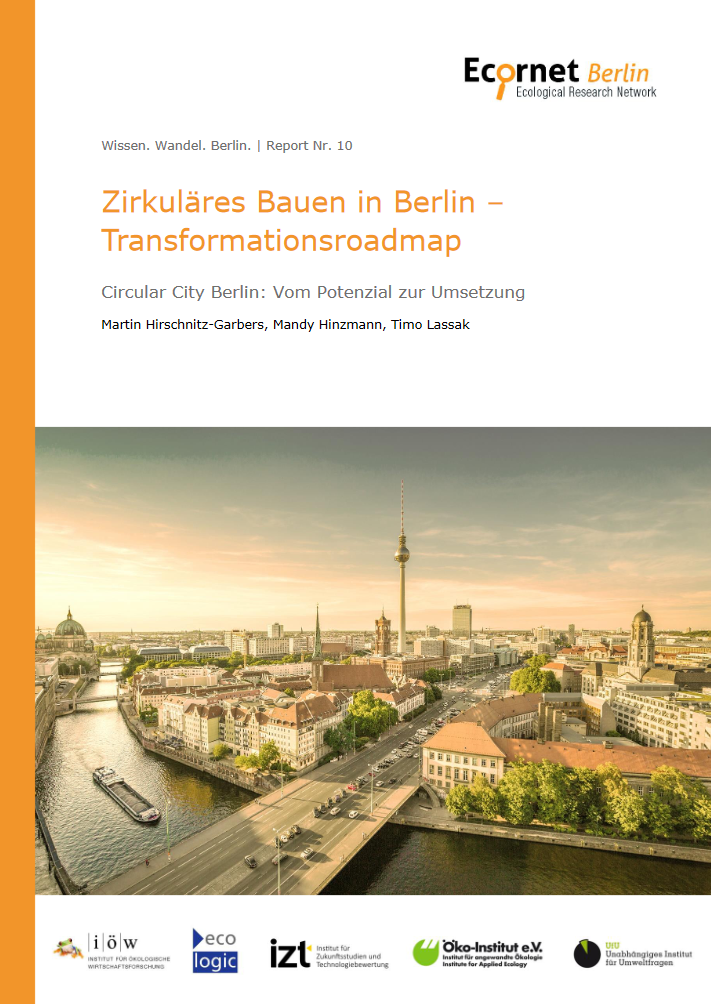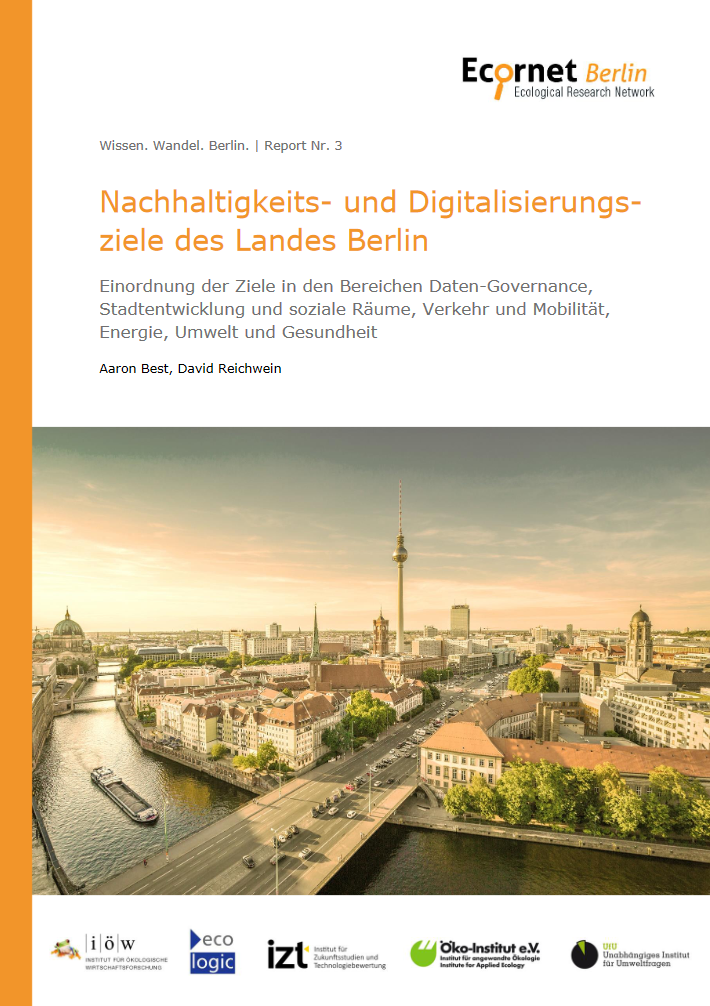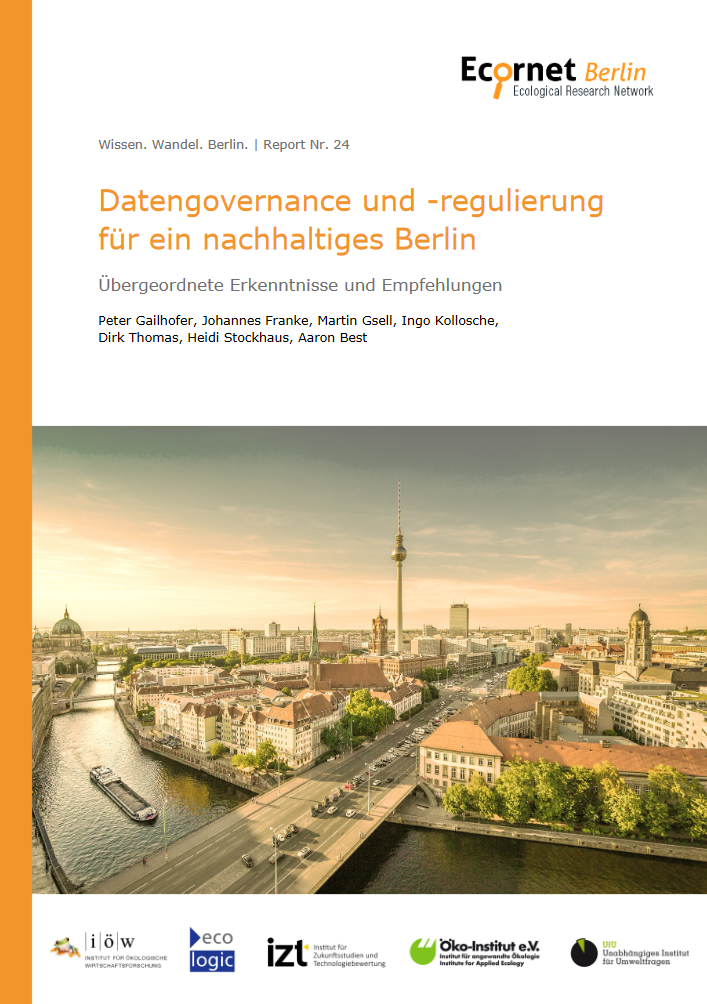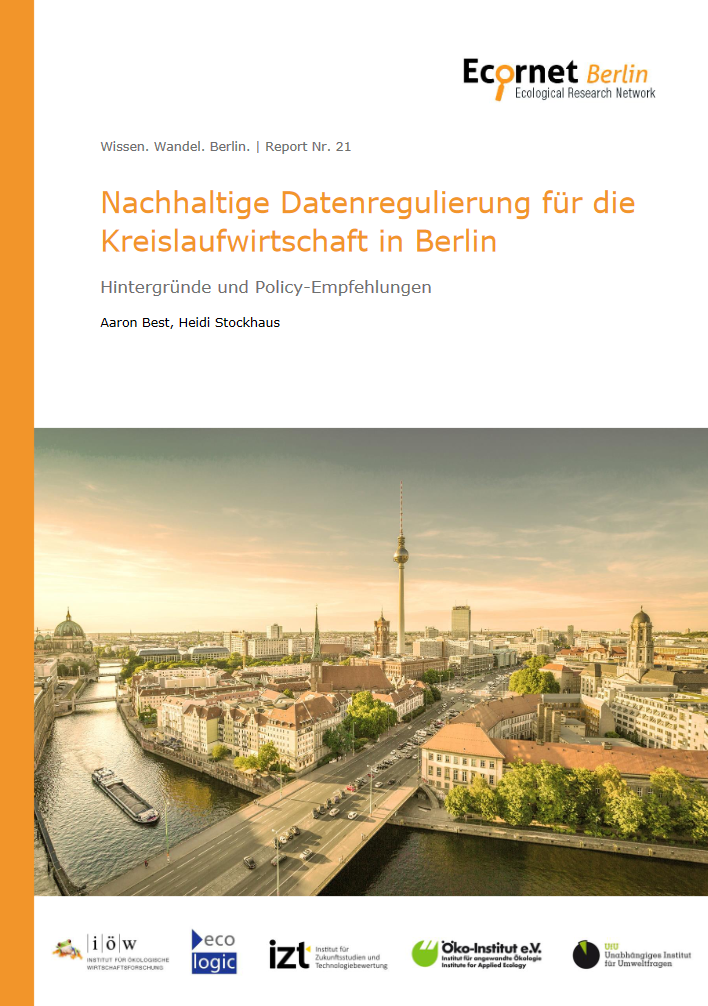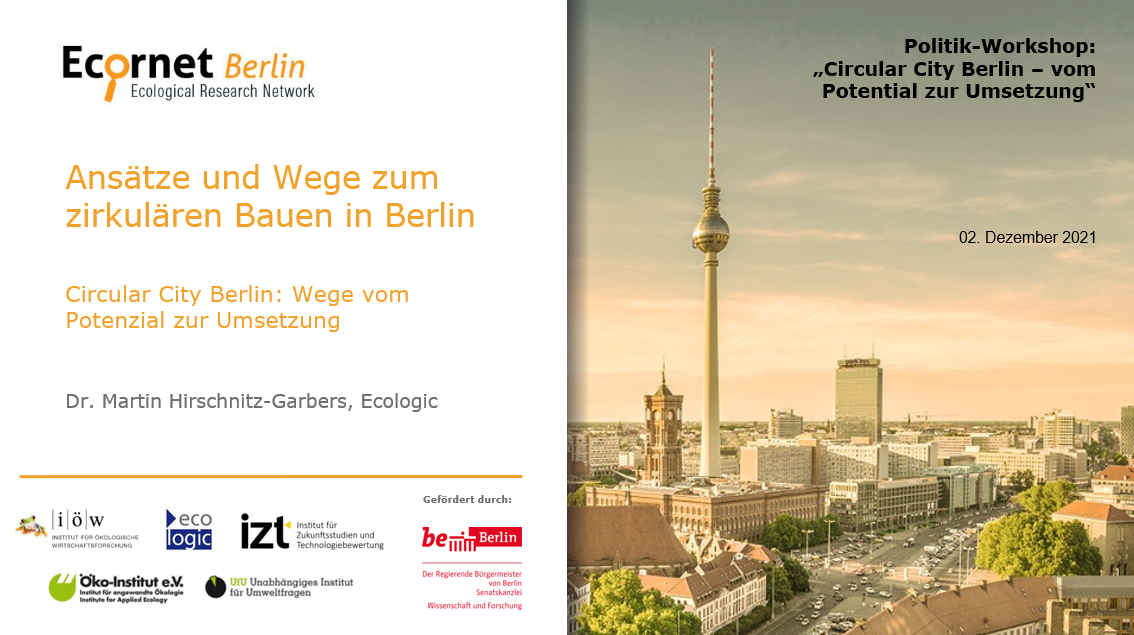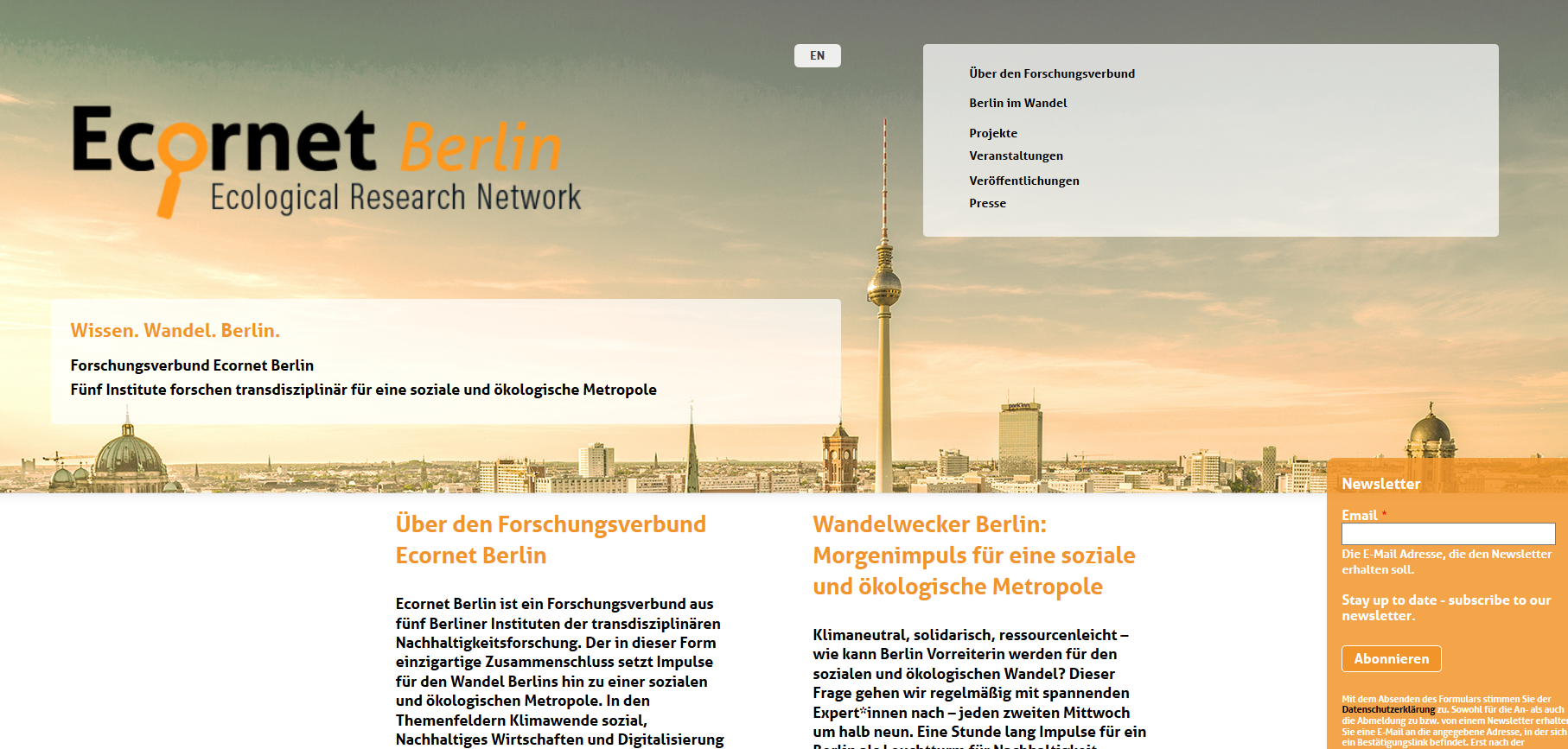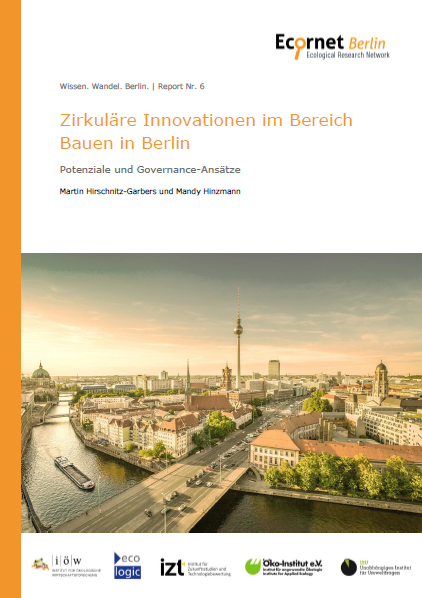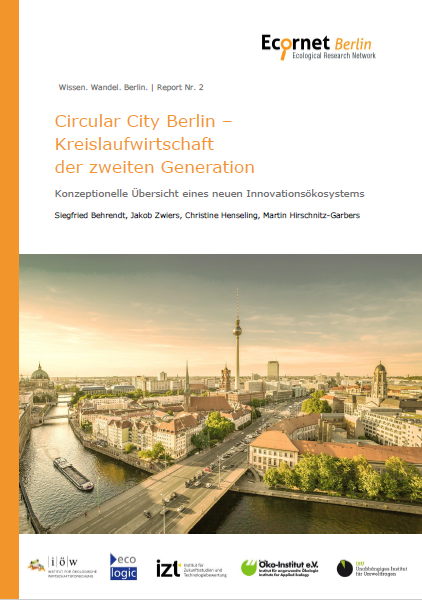Zirkuläres Bauen in Berlin – Transformationsroadmap
Circular City Berlin: Vom Potenzial zur Umsetzung
- Publication
- Citation
Hirschnitz-Garbers, Martin; Hinzmann, Mandy; Lassak, Timo (2021). Zirkuläres Bauen in Berlin – Transformationsroadmap. Circular City Berlin: Vom Potenzial zur Umsetzung. (Wissen. Wandel. Berlin. Report Nr. 10). Berlin: Ecologic Institut, Forschungsverbund Ecornet Berlin.
Promising approaches were identified via participatory stakeholder workshops, that could contribute to establishing circular construction in Berlin. Such approaches include a stronger orientation of the legal framework towards the circular economy, for example through an obligation to selective deconstruction in the Berlin Building Code. On the other hand, there is a need for even stronger public procurement of circular approaches in the building sector by facilitating the consideration of life-cycle costs in procurement practice. With the combination of these approaches, it seems possible to establish Berlin as a Circular City in the building sector in the long term.
Innovation towards circular construction in Berlin is characterised by a variety of different actors who are pursuing projects, business models and practices that can be used to strengthen the circular economy, resource conservation and climate protection along the life cycle of building projects. The spectrum ranges from modular building designs to the re-use of entire buildings or building components to the high-quality recycling of building materials for further use. At the same time, several barriers hamper the diffusion of circular construction approaches, e.g., lacking demand for circular building materials, hazardous substances in building materials as well as a lack of standards for and experience with the use of secondary building materials.
